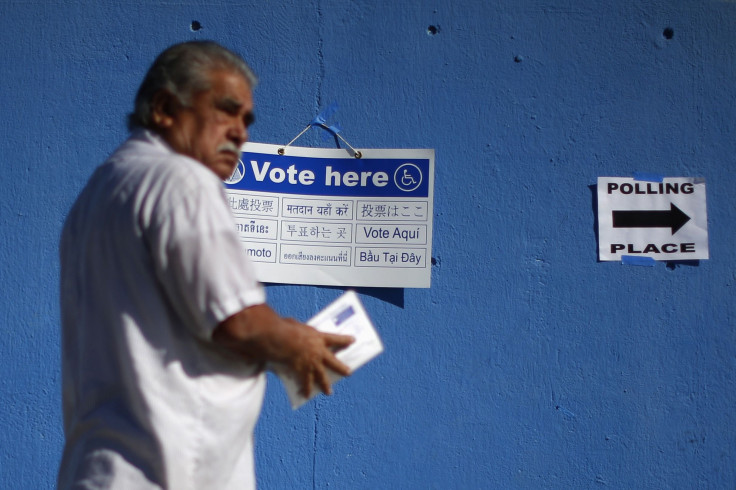Midterm 2014: Exit Polls Show Deeply Dissatisfied Electorate

WASHINGTON -- Deep and widespread dissatisfaction has made predicting the outcome of close Senate races nearly impossible. And early exit polling reported by CNN only reinforces the unpredictability of the voting public. The president and his party have low approval ratings -- but the Republican party is even less popular.
When trying to predict the outcome of an election, exit polling should be taken with healthy dose of skepticism in any case. Polls released early often omit a segment of the voting public and aren’t adjusted to reflect actual demographic turnout.
The president has largely stayed out of this campaign, but in a radio interview Tuesday he seemed to concede the midterm results won't be good for his party. The factor he blamed? The map.
"There's no doubt that, when you look at the Senate races, because of the fact only a third of the Senate is up at any given time, it tends to be a little bit arbitrary which seats are really going to be contested and which aren't," Obama said. "So, for example, in this election cycle, this is probably the worst possible group of states for Democrats since Dwight Eisenhower."
He added, "There are a lot of states that are being contested where they just tend to tilt Republican, and Democrats are competitive, but they just tend to tilt that way.”
He's not entirely wrong, but analysts will still see the midterm results as at least in part a referendum on the president.
Only 11 percent of those polled said they are enthusiastic about the Obama administration and 30 percent are satisfied; 31 percent are dissatisfied and 27 percent are angry.
Overall, Congress had low job approval numbers. Only 19 percent approve of Congress while 79 percent disapprove. Still, the majority of House incumbents will hold their seats, so it seems that voters dislike other districts' representatives but are more or less satisfied with their own.
The parties themselves didn't get much love. Of voters polled, 52 percent had an unfavorable view of the Democratic Party and 56 percent have an unfavorable view of the Republican Party; 44 percent had a favorable of the Democratic Party and 40 percent shared that view of the GOP.
The question "Is the country on the right track?" often correlates with the outcome of election, and a majority of Americans said they see the nation headed in the wrong direction. CNN reported 65 percent of those polled said the country is on the wrong track, compared to 31 percent who said it was headed in the right direction.
And that was reflected in the number of those polled who don’t see a better future for the next generation. Forty-nine percent said it will be worse for the next generation, 27 percent said it will be the same as today and 22 percent said better.
Exit polls indicated the No. 1 issue remains the economy, CNN reported. It was cited by 45 percent of respondents, followed by health care at 25 percent, illegal immigration at 14 percent and foreign policy at 13 percent. But that's a change from 2012, when CNN reported that 60 percent of those polled said the economy was the most important issue.
A plurality said the economy is actually improving, with 35 percent saying it is getting better and 33 percent saying it is staying about the same. Not everyone has a rosy view: 31 percent said the economy is getting worse.
Views on the economy have perplexed political observers. While all of the measurable benchmarks show an improving economy -- like the unemployment rate and manufacturing rates -- Americans continue to hold a pessimistic view.
The CNN poll also measured attitudes on other issues.
Asked about race relations, the majority doesn't believe they are improving. The poll found only 21 percent think race relations have gotten better while 39 percent think they have gotten worse and another 39 percent think they have stayed the same.
The poll found most disapprove of how the federal government is handling Ebola -- with 44 percent approving and 50 percent disapproving.
A plurality back legalizing marijuana, an issue that was on the ballot in a handful of states and the District of Columbia. Forty-nine percent favor legalization while 46 percent oppose it.
© Copyright IBTimes 2025. All rights reserved.






















